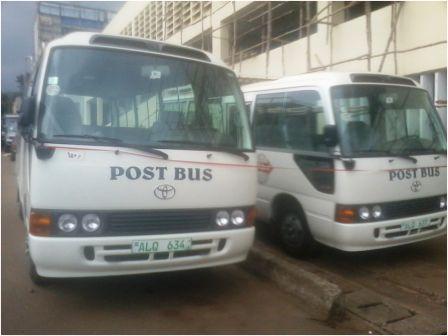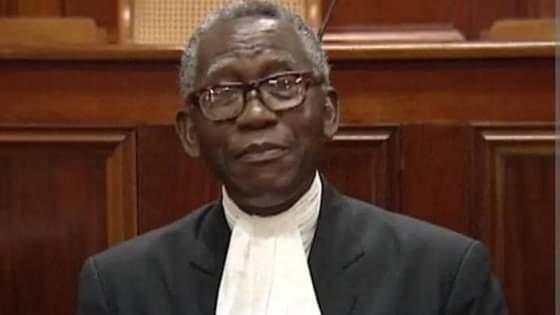The agony of transportation in Freetown
The excruciating challenge of public transport has been a perennial menace plaguing hundreds of thousands of residents in the capital Freetown, rendering Government claims of ameliorating the problem null and void.
The crisis escalated with the collapse of the public service operator, the Sierra Leone Road Transport Cooperation [SLRTC] and the rapid increase in the population.
Sierra Express Media [SEM] has been out and about gauging the agony of people in accessing public transport to go about their daily activities.
SEM: What can you say about the state of public transportation in Freetown?
Ans: Alusine S. Kamara [ASK] a student of Fourah Bay College residing at Grafton, a suburb of Freetown.
I am truly suffering, going through constraints. Accessing transportation is not easy. Commercial drivers can only accept halfway, they don’t easily accept passengers going directly to their destinations.
SEM: How much do you spend on transport fare?
Ans: I usually pay LE 3,000 to come to town and the same when returning home. But most times the conductors in the Poda Poda [mini bus] demand more and I have no option but to agree with their demands in which case I will end up paying more than Le 5,000 to avoid the fighting and shoving among passengers.
SEM: Why do you think commercial drivers behave this way to their passengers?
Ans: Well, I can’t say to be honest, but when you ask the drivers they blame traffic officers for being overbearing on drivers and the rise in the prices of fuel.
Cristiana Coker, an inspector in the Sierra Leone Police shares her views with SEM.
SEM: What can you say about the current status of transportation in Freetown?
Ans: To be honest it is not easy; people are suffering. Even we police officers, sometimes go through difficulties especially returning home from work. The COVID-19 restrictions in the transport sector have made the situation worst. The truth is, people go through so much hassle to and from work due to the acute scarcity of public transport.
SEM: But some passengers and the drivers complain the police for aggravating crisis in the sector?
Ans: I can say whenever the police are doing their job they always get the blame. We are a very professional force and we serve in the interest of the people. I can’t speak for others but we in the police force seek the interest of all Sierra Leoneans. I don’t need to say much you can see the behaviour of the drivers and their conductors.
Mariama Y. Conteh, a pupil of the Annie Walsh Memorial Secondary School has this to say:
SEM: Where do you live?
Ans: I live at Jui in the outskirts of Freetown.
SEM: How do you access transportation?
Ans: It is very difficult at the moment especially after school. We have to trek all the way to Cline Town and slug it out with colleagues to access transport to Jui. Sometimes we don’t return home until 9:00pm, and this eats into my study time. Some of us have only one set of uniform, which we launder late at night when we return home from school. It’s really tedious!
SEM: According to the government, buses were provided for secondary school pupils. What is the current status of the buses?
Ans: Well, I can’t say the buses are not effective, but they are too small in number and size. Most times the buses are overcrowded with pupils from Albert Academy and other schools. We don’t even have breathing space. The worse is that we have to wait for hours before we access them. We are pleading with the government especially the Ministry of Basic and Senior Secondary School and President Bio to assist us with more school buses as education is the main focus of the government. The commercial drivers and their conductors demand more on transportation fare from us. The prices in the government bus are cheaper, but we pay on private commercial transport much more.
David Bassie, the secretary general of the Sierra Leone Motor Driver`s Union in the Bombay-Waterloo unit.
SEM: What is your assessment of the current status of transportation in this unit?
Ans: As a union we know there are challenges in the transportation sector, especially during the curfew and the state of emergency that was imposed by the government to combat the COVID-19. It brought in a lot of setback in the sector generally. But we are happy things are getting back to normal, the lifting of the curfew and restrictions has also eased the suffering passengers face.
SEM: What do mean things are back to normal, when we know people still go through hell in accessing transportation?
Ans: Before now the time at which commercial vehicles come out is much shorter due to the curfew and the reduction in the number of passengers per vehicle contributed to more difficulties in accessing transportation.
SEM: What have you done as a union to ameliorate the suffering of passengers?
Ans: As union we are here to seek the wellbeing of our commercial drivers, but not withstanding you are here and you have witnessed how we prevail on commercial vehicles to take passengers as that is why they are out in the street to render services to the passengers. But the main reason for this transportation challenge in the city is because the number of vehicles available in the system is not enough to service the passengers seeking public transportation.
Abu, a commercial transport driver in the Bombay-Waterloo unit:
SEM: What can you say about the challenges you face in transportation?
Abu: The reason for this challenge is too much harassment by both the traffic police and traffic wardens. As for me I used to ply the old road route, but because of the too much intimidation I had to change route to this unit. They don’t tell us not to use a certain road when we go for licenses because the road are meant for vehicles, but when we use them to avoid traffic congestions, they arrest us. Mind you we don’t own the vehicles; we work for people and we also have families to take care of. I believe if the police can stop harassment of drivers, things will be much better in the transportation sector in Freetown.
By Basiru Bah
Stay with Sierra Express Media, for your trusted place in news!
© 2021, https:. All rights reserved.






